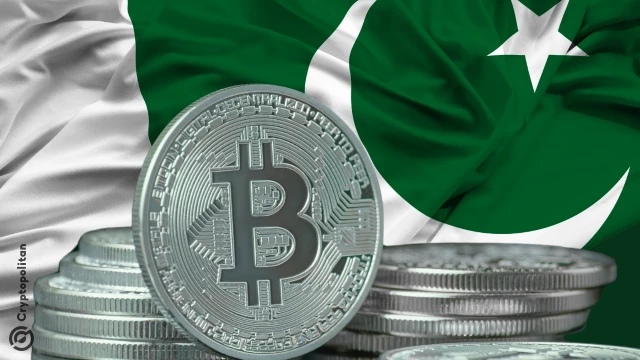
Pakistan is considering the introduction of a stablecoin backed by the rupee
Cryptopolitangeneral
Pakistan is considering the introduction of a stablecoin backed by the rupee.
📋 Article Summary
Pakistan's Stablecoin Ambitions: Stabilizing the Rupee and Fostering Crypto Adoption
As the global cryptocurrency market continues to evolve, Pakistan has emerged as a country actively exploring the potential of stablecoins to address its unique financial challenges. The reported consideration of introducing a rupee-backed stablecoin by Pakistani authorities represents a significant development in the country's fintech landscape and could have far-reaching implications for both the domestic and international crypto ecosystem.
Stabilizing the Volatile Rupee
The Pakistani rupee has faced persistent volatility, with the currency experiencing significant devaluations in recent years. A rupee-backed stablecoin could provide a much-needed anchor of stability, offering a digital alternative to the traditional fiat currency that is less susceptible to the same macroeconomic factors. By pegging the stablecoin to the rupee, Pakistan aims to create a more reliable store of value and medium of exchange, potentially enhancing the country's financial inclusion and cross-border transaction capabilities.
Expert Insights and Industry Implications
Cryptocurrency industry experts have welcomed the news, emphasizing the potential benefits of a well-designed and properly regulated stablecoin for Pakistan. "A rupee-backed stablecoin could help address the country's currency fluctuations, streamline domestic and international transactions, and potentially attract greater investment in the local crypto market," notes blockchain analyst Sara Khan.
However, the success of such an initiative will depend on the implementation details and the ability to address regulatory concerns. "Maintaining the peg, ensuring transparency, and establishing robust anti-money laundering and know-your-customer (AML/KYC) measures will be crucial for the stablecoin's long-term viability and acceptance," explains financial technology consultant Amir Raza.
Fostering Crypto Adoption and Financial Inclusion
Beyond stabilizing the rupee, the introduction of a stablecoin could also have a broader impact on Pakistan's cryptocurrency landscape. By providing a more stable and trusted digital asset, the stablecoin could serve as a gateway for increased crypto adoption among both individual investors and businesses. This, in turn, could lead to greater financial inclusion and the development of innovative fintech solutions tailored to the country's needs.
Regulatory Considerations and Global Implications
The Pakistani government's exploration of a stablecoin also raises important regulatory considerations. Policymakers will need to navigate a delicate balance between fostering innovation and ensuring appropriate safeguards are in place to mitigate risks such as money laundering, terrorist financing, and market manipulation. Successful integration with the existing financial system and international regulatory frameworks will be essential for the stablecoin's broader acceptance and integration into the global crypto ecosystem.
Conclusion
Pakistan's consideration of a rupee-backed stablecoin represents a significant step forward in the country's embrace of digital finance and its potential to address longstanding economic challenges. If executed effectively, this initiative could not only stabilize the rupee but also catalyze increased crypto adoption, financial inclusion, and the development of innovative fintech solutions tailored to the unique needs of the Pakistani market. As the global crypto landscape continues to evolve, Pakistan's stablecoin ambitions serve as a testament to the transformative power of digital assets and the opportunities they present for emerging economies.